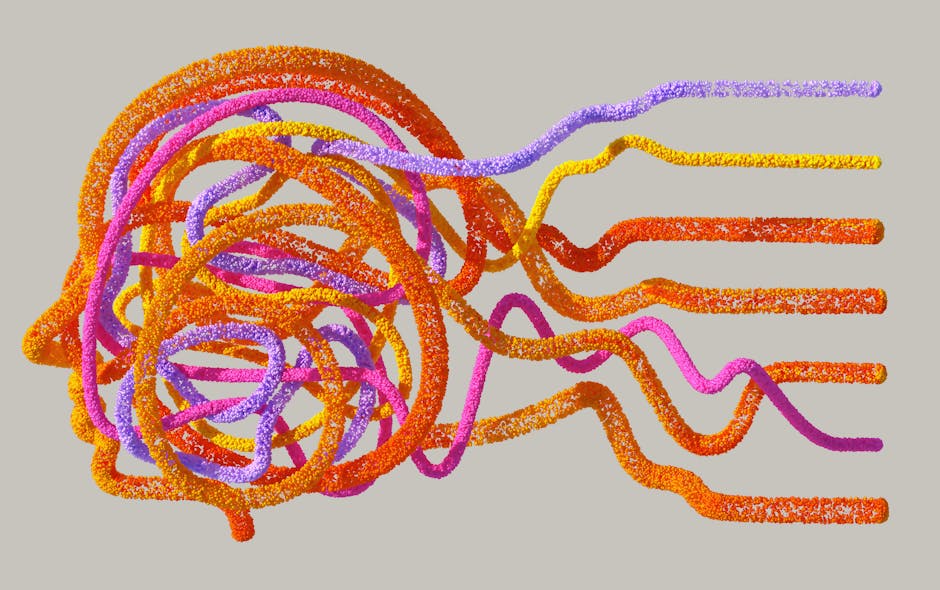The Paradox of Procrastination: Insights from Delaying Learning
Procrastination in education is often viewed through a negative lens, seen as the enemy of productivity. Yet, what if delaying learning could actually lead to unexpected insights and deeper understanding in your online education journey? This paradox is more than just a quirky perspective; it delves into the psychology of learning, the benefits of unstructured time, and the ways in which embracing the pause can empower learners in the digital age.
Understanding Procrastination in Learning

Procrastination is a universal experience among learners, and in the realm of education and online courses, it’s particularly prevalent. Many students find themselves rushing to complete assignments last minute or postponing studies altogether. This impulse often stirs feelings of guilt or inadequacy, creating a cycle of stress and avoidance. However, research has shown that procrastination can also serve as a catalyst for creativity and self-reflection. According to a study published in the Journal of Educational Psychology, students who procrastinate often end up producing work that reflects deeper thought and investment, uncovering insights that may not surface during more structured learning periods.
But how can this work in favor of online education?
The Unexpected Insights of Delayed Learning

When we allow our minds the freedom to wander and delay immediate tasks, we create space for ideas to incubate. This is where the paradox lies. Instead of viewing procrastination solely as a failure of will, consider it as an opportunity to experience profound learning moments. Often, it’s in those unscheduled hours where connections between disparate pieces of information come together, and creativity flourishes.
In online courses, this could manifest through exploration beyond the curriculum. For instance, a student studying digital marketing might procrastinate on a project, and in the delay, they find themselves diving deep into related topics like behavioral psychology or data analysis. This kind of exploration not only enriches their understanding but also allows them to bring a unique perspective to their assignments.
Neuroscience of Learning: What's Happening in Our Brains?

The fascination with the brain's role in learning has exploded in recent years, shedding light on how procrastination isn't just a behavioral issue but a cognitive one as well. During procrastination, our brains are in a process of default mode network (DMN) activation, where spontaneous thinking and creativity prosper. As highlighted in understanding the neuroscience of learning, this is the brain’s way of processing thoughts and experiences that can result in innovative ideas and solutions once the work actually begins.
What does this mean for online education? When learners integrate periods of reflection, allowing ideas to simmer, they often discover unique approaches to problems or assignments that structured learning can stifle.
Strategies to Harness the Benefits of Delayed Learning

Embracing the paradox of procrastination doesn’t mean relinquishing personal responsibility but finding strategies that utilize it effectively. Here are some approaches you might consider:
-
Set Flexible Goals: Instead of strict deadlines, establish broader time frames for learning objectives. This gives you the freedom to engage when inspiration strikes.
-
Incorporate Reflection Periods: Structure your study sessions to include breaks that encourage reflection. This can nurture creativity and insight.
-
Engage with Diverse Content: Explore topics related to your course that ignite your curiosity, even if they stray slightly off the curriculum. This kind of exploration can reveal unexpected contexts and applications.
-
Utilize Tech Tools for Engagement: Low-tech tools can also be effective in fostering engagement. As discussed in our piece on low-tech tools for online education, consider using pen and paper to jot down unexpected insights that may arise during periods of procrastination.
The Role of Emotional Intelligence in Online Learning

Another layer to consider is how emotional intelligence impacts our approach to learning and procrastination. Research has shown that students with higher levels of emotional intelligence are better equipped to navigate their educational journeys successfully. They can recognize their emotional triggers, understand their motivations, and respond to setbacks with resilience.
It’s essential to foster these emotional skills in online education. For instance, proactively addressing feelings of anxiety or discouragement can help transform procrastination from a hindrance into a tool for self-discovery.
Additionally, with the rise of online education platforms, integrating modules on emotional intelligence or incorporating empathetic practices in courses can significantly enhance student success. For those interested in deepening this aspect, the rise of emotional intelligence in online learning is redefining student experiences in digital environments.
The Impact of Breaks: Potent Intervals for Insight

Research into learning also suggests that taking periodic breaks can enhance overall retention and recall. The act of stepping away from intense studying allows the brain to process and consolidate information more effectively. This is echoed in the concept of spaced repetition, where distributing study sessions over time leads to better learning outcomes.
So, next time you find yourself mindlessly scrolling through social media while avoiding your lesson plan, know that a mental break is valid—embrace it. Your brain is working in the background, potentially leading you to breakthrough insights.
Learning by Exploring: The Value of Tangential Learning

Tangential learning is an insightful educational phenomenon that occurs when students engage with content outside of their immediate coursework. This could involve researching current events, reading literature, or simply exploring the vastness of the internet for new ideas and concepts. The act of wandering through different paths of learning can enrich one’s understanding, leading to a more profound grasp of the subject matter.
Consider a student enrolled in an environmental science course. By engaging with documentaries on climate change or reading non-fiction narratives about ecological preservation, they cultivate a broader comprehension of their primary subject, potentially enhancing their academic performance. By practicing tangential learning, they weave in diverse perspectives that can be seamlessly integrated into their coursework.
Gamifying Delayed Learning: Turning Procrastination into Progress

Gamification is proving to be an exciting approach for educators seeking to reshape online learning experiences. By incorporating elements of game design into educational frameworks, learners are often more motivated to engage deeply with material. When you gamify the learning process, you may find that your initial bout of procrastination transforms into a playful exploration, where students take ownership over their learning journeys.
For instance, implementing a points system where students earn rewards for engaging with extra content (even related to their procrastination habits) can ignite a competitive spirit. Consequently, their exploration may lead to new discoveries that influence their primary coursework. Interested in furthering your knowledge on this method? Check out our article on gamifying online courses for more insights.
Recommendations for Educators: Embrace the Pause

Educators themselves can benefit from understanding these dynamics. First and foremost, shifting the narrative around procrastination is vital. Encourage students to embrace their learning journey’s natural ebbs and flows.
-
Create Flexible Course Assignments: Allow room for exploration and creativity in assignments, recognizing that engaging deeply with specific topics can lead to enriched learning processes.
-
Celebrate Insightful Breaks: Acknowledge that taking time away from structured learning doesn’t equate to failure. Instead, promote the idea that breaks can lead to powerful insights and improved work later.
-
Model Emotional Resilience: Share personal stories about navigating procrastination and emotional hurdles, providing students with real-world examples of overcoming challenges.
Next Steps for Learners: Redefining Procrastination

As you reflect on the paradox of procrastination within your online courses, consider actionable steps for your learning. Evaluate the relationship you have with deadlines and allow flexibility in your educational goals. Embrace the unstructured moments as opportunities to develop insights and enhance creativity.
Connect with peers for discussions and reflections, share your discoveries and those moments of clarity that arise from procrastination. Most importantly, approach your learning journey with curiosity and openness.
By shifting your mindset, you can transform procrastination into a valuable tool for personal growth, empowering you to dig deeper into your education.
Final Thoughts: The Symbiosis of Insight and Delay
In this brave new world of online education, where flexibility and self-directed learning reign, the paradox of procrastination reveals its true strength. Use these insights to cultivate a richer experience in your educational journey, allowing the complex dance between delay and insight to elevate your learning endeavors.
By embracing the nuances of procrastination and understanding its potential for insight, you’re not merely delaying; you’re indulging in a richer, more informative journey through online education.

